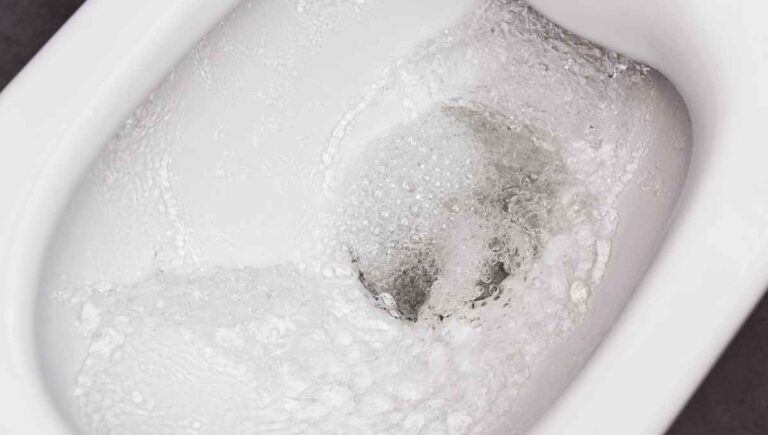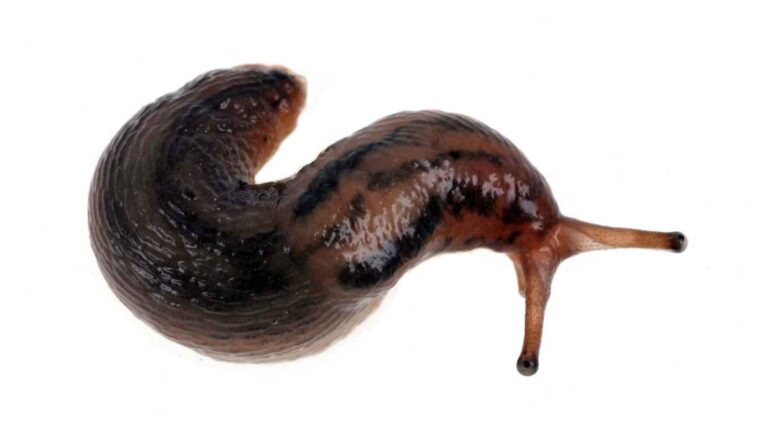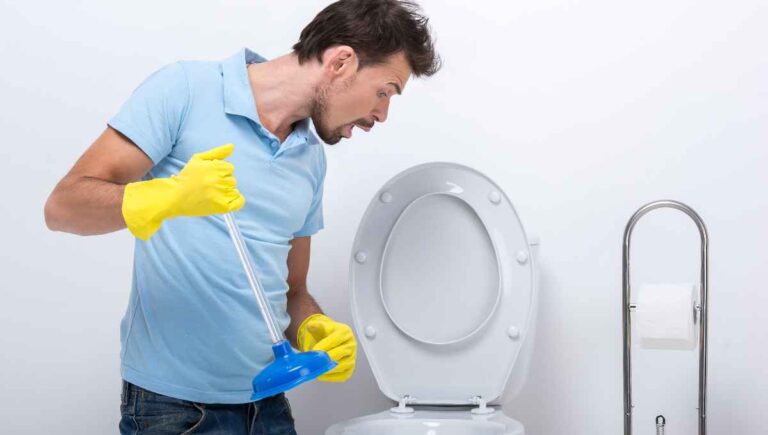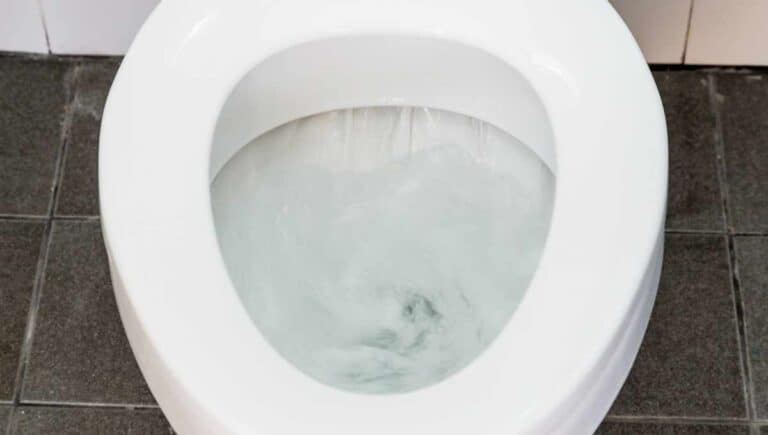Can You Flush Dog Poop Down the Toilet? (Read This First!)
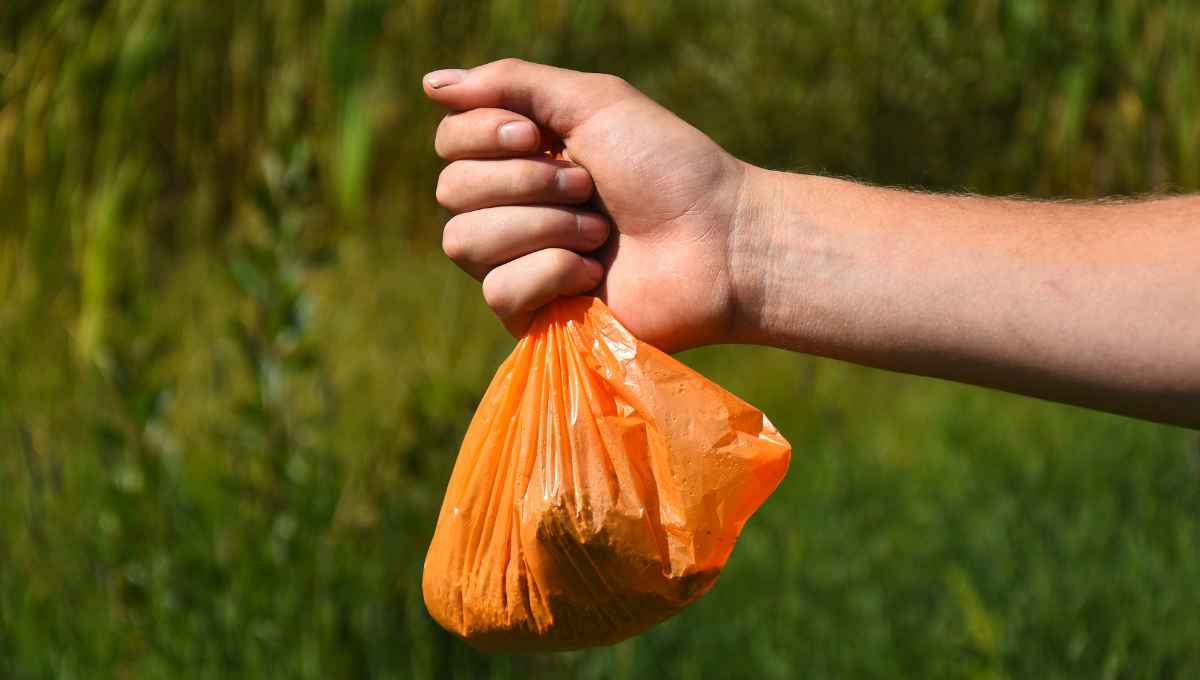
As a dog owner, you may find yourself wondering what to do with your furry friend’s waste. Can you simply flush it down the toilet like human waste? It’s a question that has likely crossed the mind of every dog owner at one point or another.
You should not flush dog poop down the toilet. Unlike human waste, dog poop contains harmful bacteria and parasites that can contaminate waterways and harm aquatic life. Dog poop bags do not break down properly in the sewer system and can cause blockages or damage to pipes.
Now that you know flushing dog poop down the toilet is not an option, what can you do with your furry friend’s waste? In the following sections, we’ll explore some safe and effective alternatives. From composting to specialized disposal systems, we’ll provide you with a range of solutions to choose from.
This post contains affiliate links. This means Household Blogger may earn a commission should you make a purchase using any of our links. Please refer to our full affiliate disclosure policy for full details.
Here’s a Quick Pro Tip!
Here are some of our favorite dog waste bags available on Amazon:
1. Earth Rated Dog Poop Bags – Extra-thick and strong for easy clean-up.
2. AmazonBasics Dog Waste Bags – Affordable and easy to use.
3. Pet N Pet Biodegradable Dog Poop Bags – Eco-friendly and unscented.
Understanding the Risks of Flushing Dog Poop
Dog owners are faced with the challenge of disposing of their pets’ waste in a responsible and eco-friendly manner. While flushing dog poop down the toilet may seem like a quick and convenient solution, it comes with its own set of risks and considerations.
This section will explore the potential dangers of flushing dog poop and what alternatives you can consider.
Why Flushing Dog Poop Down the Toilet May Not Be Safe
When it comes to disposing of dog poop, many people wonder whether it is safe to flush it down the toilet. While this may seem like an easy solution, it can pose several risks to human health and the environment.
First and foremost, flushing dog poop can create potential health hazards. Dog feces can contain various harmful bacteria, viruses, and parasites that can cause human illnesses.
These pathogens can survive in water for several days, meaning that flushing dog poop can contaminate water sources and cause infections in people who come into contact with the contaminated water.
In addition to health hazards, flushing dog poop can also lead to environmental risks. When dog poop enters the water supply, it can contribute to water pollution, harming aquatic life and ecosystems. Moreover, dog poop can also contain nutrients that contribute to algae blooms and other water quality problems.
Flushing dog poop can also be problematic for septic systems. Septic systems are designed to treat human waste and household wastewater, but they may not be able to handle the volume of waste generated by dogs.
Flushing dog poop down the toilet can overload septic systems, leading to clogs, backups, and other problems.
How Flushing Dog Poop Can Cause Plumbing Problems
Clogged pipes are one of the most common plumbing issues caused by flushing dog poop. Dog poop is not easily broken down by the water in your pipes and can quickly accumulate, leading to blockages that can cause backups and overflows.
These blockages can be particularly problematic in older plumbing systems or homes with narrow pipes.
In addition to clogged pipes, flushing dog poop can lead to septic system issues. If you have a septic tank, flushing dog poop can cause it to fill up faster than it should. This can lead to the need for more frequent pumping, which can be costly.
To prevent dog poop from clogging your pipes, it’s important to dispose of it properly. One option is to bag it and throw it in the trash. You can also consider using a pet waste disposal system or composting the poop.
If you have already been flushing dog poop down the toilet and are experiencing plumbing problems, there are a few things you can do to identify and fix the issue. One sign of a clogged pipe is slow draining or gurgling sounds coming from your toilet or sink.
If you suspect a blockage, you can try using a plunger or drain snake to clear it. If that doesn’t work, you may need to call a professional plumber.
To identify issues with your septic system, watch for signs like slow drains, foul odors, or soggy patches in your yard. If you suspect a problem, having your septic tank inspected and pumped as needed is important.
The Environmental Impacts of Flushing Dog Poop
Flushing dog poop down the toilet not only causes plumbing problems but also has negative impacts on the environment. When dog poop is flushed, it ends up in the wastewater system and eventually reaches water treatment plants.
These treatment plants are not designed to remove pet waste, and as a result, the waste can end up in waterways and the ocean. Dog poop is considered a pollutant and can cause harm to aquatic life.
It contains harmful bacteria, viruses, and parasites that can contaminate water sources and harm marine animals. Additionally, the high nutrient content in dog poop can contribute to the growth of harmful algae blooms, leading to oxygen depletion and fish kills.
Fortunately, there are alternatives to flushing dog poop, which are better for the environment. One option is to simply pick up the poop with a bag and throw it in the trash. This method prevents the waste from entering the wastewater system and reduces the risk of environmental contamination.
Another alternative to flushing dog poop is composting. Composting dog poop involves placing it in a designated area with other organic materials like leaves and grass clippings.
Over time, the composting process breaks down the waste and creates a nutrient-rich fertilizer that can be used in gardens or landscaping.
Composting dog poop has several benefits. It reduces the amount of waste that ends up in landfills and reduces greenhouse gas emissions. Additionally, the resulting fertilizer can be used to nourish plants and improve soil health.
Best Practices for Disposing of Dog Poop
Disposing of dog poop is an important responsibility of every dog owner. Not only is it unpleasant to leave dog waste in public spaces, but it can also pose health risks to humans and other animals.
This section will discuss some of the best practices for disposing of dog poop, ensuring that you can be a responsible dog owner and maintain a clean and safe environment.
The Proper Way to Dispose of Dog Poop
When it comes to disposing of dog poop, there are several recommended methods to choose from. Each method has pros and cons, so choosing one that works best for you and your lifestyle is important.
One of the most popular and eco-friendly ways to dispose of dog poop is to compost it. To do this, you’ll need a dedicated compost bin or pile to deposit your dog’s waste. Not all compost bins or piles are suitable for dog poop, so be sure to do your research before starting this method. Also, remember that using compost on edible plants or vegetables is not safe.
Another popular option is to use a pet waste disposal system. These systems typically consist of a specially designed container and a set of bags that you can use to pick up and dispose of your dog’s waste. The container is designed to keep the smell contained and prevent pests from getting into the waste.
If you prefer a more traditional method, you can also dispose of your dog’s waste in the garbage. However, it’s important to ensure you’re using a bag that won’t break and that you tie it tightly before disposing of it.
Regardless of your chosen method, cleaning up after your dog regularly is important. Ideally, you should pick up after your dog every time they go to the bathroom. This not only helps keep your yard or community clean, but it also helps prevent the spread of disease.
To properly dispose of dog poop, you’ll need a few tools and pieces of equipment. First, you’ll need bags or scoops to pick up the poop. You’ll also need a dedicated container to hold the waste until it’s time to dispose of it.
If you’re composting the waste, you’ll need a compost bin or pile and a dedicated spot in your yard for it. Finally, it’s always a good idea to wear gloves and wash your hands thoroughly after handling dog poop to prevent the spread of germs.
Alternatives to Flushing Dog Poop Down the Toilet
There are several other options available for disposing of dog poop. One option is to throw it in the trash simply. However, it’s important to ensure you’re using a bag that won’t break and that you tie it tightly before disposing of it.
It’s also worth noting that some areas may have specific regulations around disposing of pet waste in the trash, so be sure to check with your local waste management department. If you’re out on a walk with your dog and need to dispose of their waste, several options are available for proper disposal in public spaces.
Many cities and parks now have dedicated pet waste stations that provide bags and a place to dispose of the waste. If you can’t find a pet waste station, it’s important to pick up after your dog and dispose of the waste in a trash can.
While burying your dog’s waste in your yard may be tempting, it’s not recommended. Burying dog poop can contaminate the soil and potentially harm plants or wildlife in the area. It’s also possible for the waste to seep into groundwater, which can cause further environmental damage.
Instead, it’s best to choose a safe and eco-friendly disposal method. Whether you choose to compost the waste, use a pet waste disposal system, or dispose of it in the trash, it’s important to clean up after your dog regularly and use the necessary tools and equipment to dispose of the waste properly.
You might also enjoy our post on Whether You Can Flush Kitty Litter Down The Toilet
Composting Dog Poop: Pros and Cons
Composting dog poop is becoming an increasingly popular disposal method, especially for environmentally conscious people. However, weighing the pros and cons before deciding if this method is right for you and your furry friend is important.
One of the main benefits of composting dog poop is that it’s a sustainable and eco-friendly way to dispose of waste. Composting can also help reduce the amount of waste in landfills and prevent the release of harmful greenhouse gases.
Additionally, once the compost is fully processed, it can be used as a nutrient-rich fertilizer for plants.
However, there are also some drawbacks to composting dog poop. One of the biggest concerns is the potential for contamination by harmful bacteria, parasites, and other pathogens. If the compost isn’t processed correctly, it can also release foul odors and attract unwanted pests.
To safely and effectively compost dog poop, following certain guidelines is important. Firstly, only compost dog waste from healthy dogs and avoid composting any waste that shows signs of illness.
Use a separate compost bin specifically for dog waste, and avoid mixing it with other types of compost. It’s also important to ensure the compost bin is located in an area that’s well-ventilated and away from any food crops.
To help break down the waste and reduce the risk of contamination, it’s recommended to add a compost accelerator, such as sawdust or leaves, to the bin.
The compost should also be turned regularly and kept moist to ensure proper decomposition. It’s important to note that the composting process can take several months or even up to a year, so it’s not a quick solution.
Laws and Regulations on Dog Poop Disposal
It’s important to be aware of local laws and regulations regarding the disposal of dog poop to avoid penalties and fines. Laws regarding dog waste vary depending on the city, state, or country, so it’s essential to research and stay informed about the regulations in your area.
Some cities require dog owners to immediately clean up their dog’s waste and dispose of it in a designated area, such as a waste bin or a specific composting system.
Other cities may allow dog owners to leave the waste in their yards if it’s enclosed and not visible from the street. Some areas also prohibit flushing dog poop down the toilet or burying it in the yard.
Penalties for not properly disposing of dog poop can vary widely depending on the location and the severity of the offense. In some cases, fines can range from a few hundred dollars to thousands of dollars, and repeat offenders may face even steeper penalties.
Some cities may also require dog owners to attend classes on proper waste disposal or perform community service.
To stay informed and compliant with dog poop disposal laws and regulations, it’s important to do research and stay up-to-date on any changes or updates to the laws in your area.
You can contact your local government or animal control agency for more information on specific regulations in your city or state. It’s also a good idea to read and follow any signage or notices posted in public areas about dog waste disposal.
Tips for Managing Dog Waste in Urban Environments
Managing dog waste in urban environments can challenge many dog owners. With limited space and resources, it can be difficult to find ways to properly dispose of your dog’s waste without causing a disturbance to others.
In this section, we will provide some helpful tips and strategies for managing dog waste in urban environments so that you can be a responsible dog owner and a considerate member of your community.
How to Manage Dog Waste in an Apartment
Managing dog waste in an apartment can be challenging for pet owners. Unlike living in a house with a yard, apartment living can be more complicated when it comes to managing pet waste. Here are some challenges of managing dog waste in an apartment and solutions to address them.
Challenges of managing dog waste in an apartment:
- Lack of outdoor space: One of the biggest challenges of managing dog waste in an apartment is the lack of outdoor space. Many apartment buildings don’t have yards or designated areas for pets to relieve themselves.
- Odor: With limited space, it can be difficult to keep the smell of dog waste from lingering in the apartment. This can be especially challenging for pet owners who don’t have access to a balcony or outdoor area.
- Unavailability of composting options: Many pet owners prefer to compost dog waste, but this option may not be available in an apartment building.
Solutions for managing dog waste in an apartment:
- Use of dog poop bags: Dog poop bags are an essential item for apartment pet owners. They are widely available and can be easily purchased from pet stores or online retailers. They provide a convenient and hygienic way to collect and dispose of dog poop.
- Utilize pet-friendly spaces: Many apartment buildings have designated areas for pets to relieve themselves. These spaces are typically located outside the building and are often equipped with dog waste bags and trash cans.
- Hire a dog waste removal service: Some pet owners opt to hire a dog waste removal service to manage their pet’s waste. These services typically come on a weekly or bi-weekly basis and are affordable options for pet owners who are short on time.
When disposing of dog poop in an apartment building, it’s important to follow the rules and regulations of the building. Here are some general guidelines to follow:
- Use designated trash cans: Many apartment buildings have designated trash cans for pet waste. It’s important to use these cans rather than regular trash cans to prevent odor and contamination.
- Never flush dog poop down the toilet: Flushing dog poop down the toilet is not recommended. Dog waste can contain harmful bacteria that can contaminate the water supply and harm aquatic life.
Managing dog waste in an apartment requires some extra effort and consideration, but it’s essential to maintain a clean and healthy living space for both you and your furry friend. Using the solutions outlined above and following the proper disposal guidelines ensures that your apartment stays clean and odor-free.
How to Dispose of Dog Poop When You Don’t Have a Yard
If you are a dog owner living in a city or urban environment without a yard, disposing of dog poop can be a challenge. Fortunately, there are several options available to make the process easier and more eco-friendly.
One of the most common ways to dispose of dog poop is to use a dog poop bag. These bags are widely available and can be found at pet stores, supermarkets, and online retailers. Simply pick up the poop with the bag and dispose of it in a trash can.
Another option is to use a dog poop composter, which is an eco-friendly way to dispose of dog poop. The composter breaks down the poop and turns it into compost that can be used in your garden. These composters are available for purchase online and at some pet stores.
If you don’t have the time or energy to dispose of your dog’s poop yourself, consider hiring a dog poop removal service. These services will come to your home and remove the poop for you on a regular basis.
If you don’t have a yard, disposing of dog poop can be a bit more challenging. However, there are still several options available. You can use a dog poop bag and dispose of the poop in a public trash can or a pet waste station, which is equipped with bags and trash cans specifically for pet waste.
When it comes to flushing dog poop in a city sewage system, it’s important to note that it’s not recommended.
Dog waste can contain harmful bacteria and parasites that can contaminate the water supply and harm aquatic life. Disposing of dog poop in a trash can or other appropriate containers is always best.
What Kind of Dog Poop Bags Are Biodegradable?
If you’re a responsible dog owner, you know the importance of picking up after your pet. However, using traditional plastic dog poop bags can have negative environmental impacts, as they can take hundreds of years to decompose.
Biodegradable dog poop bags are an eco-friendly alternative that can break down in a matter of months.
Using biodegradable dog poop bags has several benefits. Firstly, it helps reduce the amount of plastic waste in the environment. Secondly, it can help prevent harmful toxins from leaching into the soil and water supply.
Additionally, using biodegradable dog poop bags is an easy and effective way to reduce your carbon footprint and protect the environment.
There are several types of biodegradable dog poop bags available on the market. Some are made from plant-based materials like cornstarch, while others are made from recycled plastic. These bags are designed to break down in a matter of months rather than centuries, like traditional plastic bags.
It’s important to note that not all biodegradable dog poop bags are created equal. Some may break down faster or more completely than others, so it’s important to do your research and choose a reputable brand.
You can find biodegradable dog poop bags at pet stores, online retailers, and some supermarkets. It’s important to look for bags that are certified by reputable organizations like the Biodegradable Products Institute or the Compost Manufacturing Alliance.
These certifications ensure that the bags are truly biodegradable and meet certain environmental standards.
Final Thoughts
In conclusion, while it may seem like a convenient solution, flushing dog poop down the toilet is not recommended. The potential environmental and plumbing hazards, including blockages and water contamination, outweigh any convenience.
Instead, pet owners should dispose of dog waste in a responsible and environmentally-friendly manner, such as using designated pet waste bags or composting.
By taking proper steps to manage dog waste, we can keep our homes and communities safe and clean.




